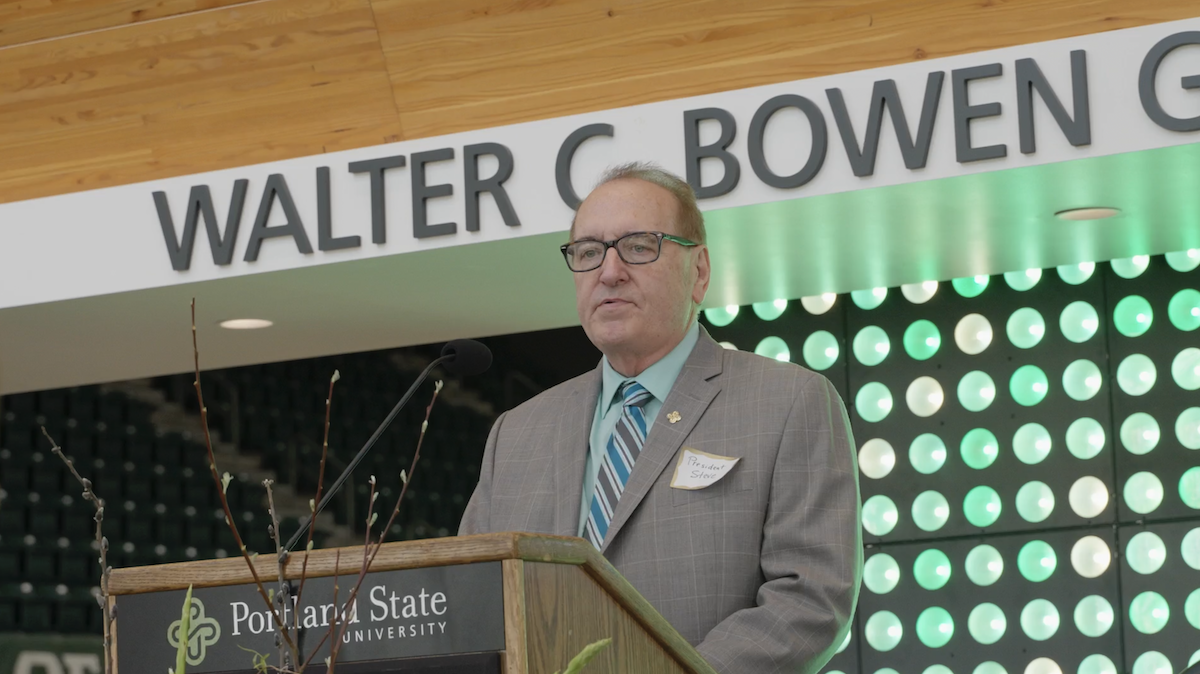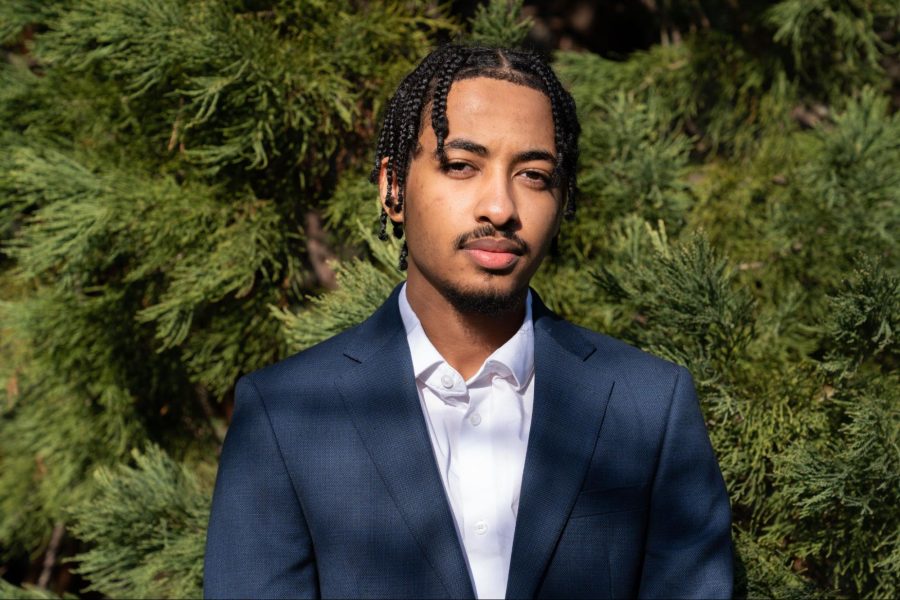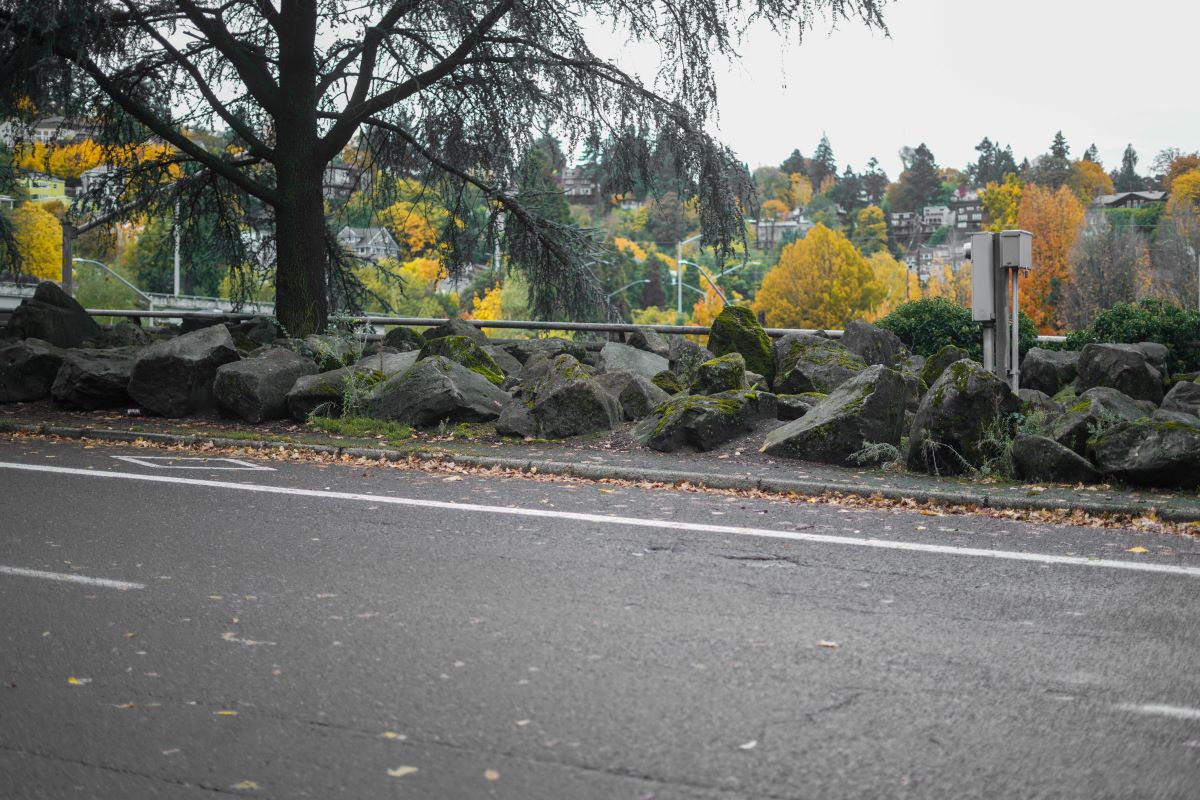In 2020, Stephen Percy took over as the 10th president of Portland State, easily stepping into the role after serving as acting and interim president in spring and summer of 2019 respectively. With the end of this academic year marking the conclusion of his term, it’s time to look back on some of the goals Percy set and how he employed his presidency to meet them.
The proposed elimination of racism
Perhaps the loftiest yet most crucial of goals that Percy advocated for he presented early on in his term at PSU.
“We must confront and eliminate racism,” said Percy at the Fall 2020 Convocation, a public assembly of faculty and staff that takes place at the beginning of each academic year. This was Percy’s first convocation ceremony as the elected president of the university.
Percy has had a long career focused on civil rights and equity, having written two books on the subject and co-authored four more.
During his term as president, Percy initiated the Time to Act program. This is an ongoing, comprehensive initiative consisting of 46 actionable steps intended to improve the ubiquity of racial equity within PSU as a community and professional environment.
Of the 46 items on the checklist, 15 have been completed, 28 are in-progress, and three of them have not yet begun. Many of the items that have not been completed are tied up in administrative processes, or are temporarily halted due to various circumstances. For example, one step on the list is to hire a Director of Diversity Education. This has been temporarily halted due to a hiring freeze announced in Nov. 2022 due to low enrollment causing budget issues.
“[We have] a long way to go, but we’ve also come a long way,” said Dr. Ame Lambert, the vice president of Global Diversity and Inclusion.
The Time to Act initiative is crucial in PSU’s long-term goal of bringing forth an actionable process to confronting racism, relaying a central part of Percy’s promise.
Criticisms of the recent policy update to the Campus Public Safety Officers (CPSO) made by the President’s office, however, have led some students and faculty to question how this allegiance to equality is manifesting in real time.
Rearmed campus
Percy sent out a campus-wide email on April 11 publicly announcing that the CPSO had recently rearmed—after having announced that officers did not have arms on campus patrols in 2021—and would continue to remain armed on patrols until further notice.
The criticisms against Percy and PSU Police Chief Willie Halliburton arose on how student voices were not consulted in the decision process, a decision which carries additional weight considering CPSO officers’ record of using lethal force.
On June 29, 2018, a campus security officer fired 17 gun shots at Jason Erik Washington due to him carrying a firearm, despite having a valid concealed carry permit. The incident compelled PSU President Percy to form a memorial committee, which first met in Jan. 2021. The committee will erect a two-piece artistic memorial for Washington, set for next year.
Disarm PSU is an ongoing initiative that has been attempting to get guns out of CPSO officers’ hands since 2018. Katie Cagle is a member of the movement, as well as a behavioral health project assistant at the university. Percy did not impress Cagle with the memorial’s delayed process.
“Even with the university time curve, it’s really disrespectful,” Cagle said. “I’m really grateful to Percy for his commitment to racial justice—but also, it’s the bare minimum.”
In addition to protecting students, the decision to rearm campus officers is also for the safety of said officers, according to Percy.
“Our Campus Public Safety people are the most diverse people, the most diverse unit on campus, and they’ve really committed to an unarmed patrol,” he said. “I think we’ve got a really good group of people that really care. They definitely believe in de-escalation, they’ve had de-escalation training, we’re going to give some more of that. But I also need to keep these folks safe.”
The decision came in the midst of an uptick in weapons-related incidents on campus.
“The number of incidents in the previous two or three years involving weapons of any kind was about less than five…” Percy said. “Last year, it’s been three or four times that.”
New goals and who they fall upon
Percy proposed another goal at the Fall 2020 Convocation, to “ensure student success by innovating new responses to challenges we face.”
The controversy over the decision has prompted Percy to continue to ponder over the issue of transparency between administration and the student body.
“One of the things we’ve heard a lot about in the last year is transparency, transparency, transparency,” Percy said. “As President, I’ve tried to be as transparent as I can be… but whatever we’re doing isn’t quite enough.”
Some alternative solutions have been raised to confront the issue of campus safety, such as increased de-escalation training and non-law enforcement responders to behavioral crises.
With Percy retiring, these new goals of transparency and alternative solutions to rearming campus safety officers will be left up to the new elected university president.
Dr. Ann E. Cudd is set to take over as PSU’s 11th president starting this summer, with Percy assisting her in the transition. Afterwards, Percy will reassume a role amongst PSU faculty, where he will write about his leadership experiences before he retires, according to a message he sent to the campus.






